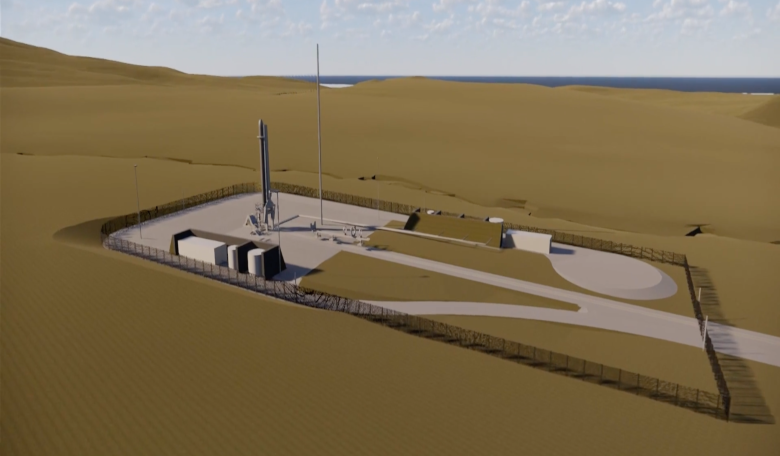Construction on Europe’s first vertical launch site could begin later this year, if the planning application for a space hub on the A’ Mhoine peninsula, Melness, near Tongue in Scotland is approved.
This would pave the way for the latest generation of small communications satellites to be launched into an Earth orbit from the northern Highlands of Scotland within the next two years.
The construction of the space hub – which would be called Space Hub Sutherland – is expected to generate a total of around 250 well-paid jobs across the region and at national level, including through manufacturing and supply chain opportunities.
Development agency Highlands and Islands Enterprise (HIE) who submitted the planning application has already approved funding to the tune of up to £17.3 million to design and build the space hub. This is made up of funding from HIE itself (£9.8m), the Nuclear Decommissioning Authority (£5m), and the UK Space Agency (£2.5m).
The hub is being designed by NORR Architects, a design firm in Inverness, Scotland and it will have to meet strict regulations, and will be subject to a rigorous planning process, including public consultation. If approved it would include a launch control centre, a single launch pad and associated infrastructure, including roadways, fuel storage, office premises, and antennas.
A temporary lightning tower to redirect lightening away from the rocket would also be installed at the launch pad around flight days.
It is anticipated that over time, up to 12 launches a year of small, commercial satellites that will typically be used for Earth observation could be made from Sutherland.
David Oxley, director of business growth with HIE, believes that establishing vertical launch capability will mark a major advance for Scotland’s growing space sector.
“This is a truly unique and innovative venture that aims to create the first launch site of its kind in Europe,” said Mr Oxley.
“Space presents a huge economic opportunity for Scotland, and the Highlands and Islands is well placed to benefit substantially. Even before the space hub is built, we’ve already received a huge vote of confidence from launch company Orbex, who established a manufacturing facility in Forres just over a year ago.
“That’s an indication of the wider economic benefits that will be generated by establishing a launch facility, and there is great potential for more to follow in other parts of our region,” added Oxley.
HIE has spent two years gathering data and assessing potential effects on wildlife and the local habitat to ensure the planning application includes measures to address and minimise impacts on the land and marine environments. The agency has also said it aims to cut emissions and establish carbon offsetting solutions in order to make the project carbon neutral.
“We’re very mindful of the need to respect the natural environment and have been diligent in designing measures that will minimise the environmental impact of construction and operations,” Oxley said.
“Now that the application is in, we very much hope that people will take the time to study our plans carefully and look forward to the council making a decision in due course,” he added.











